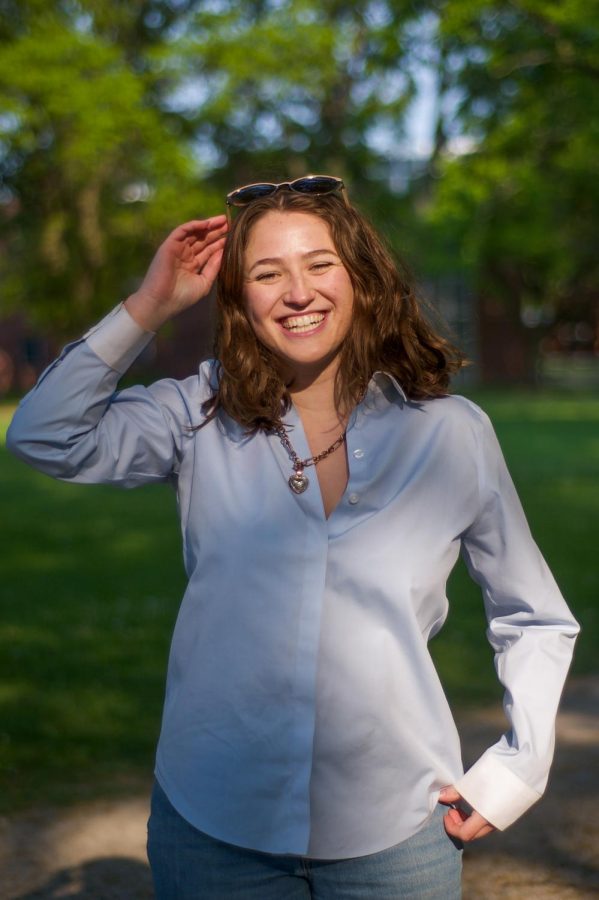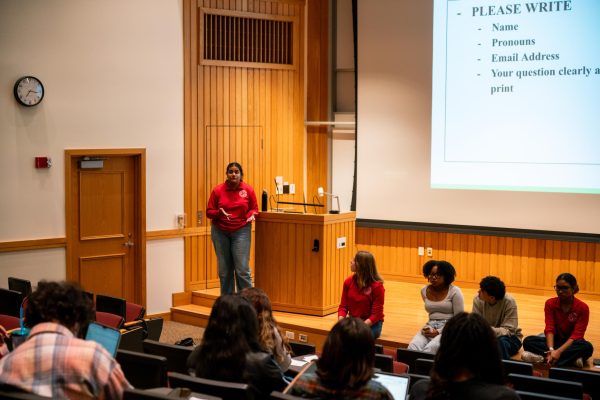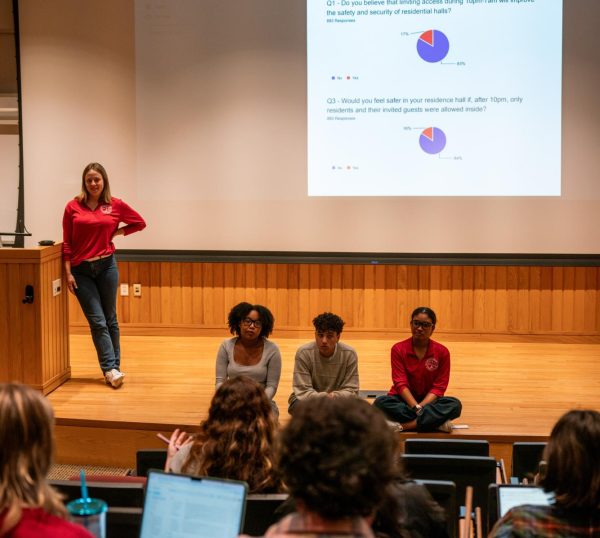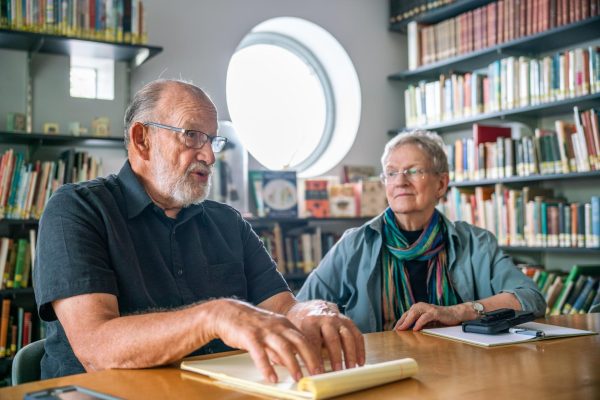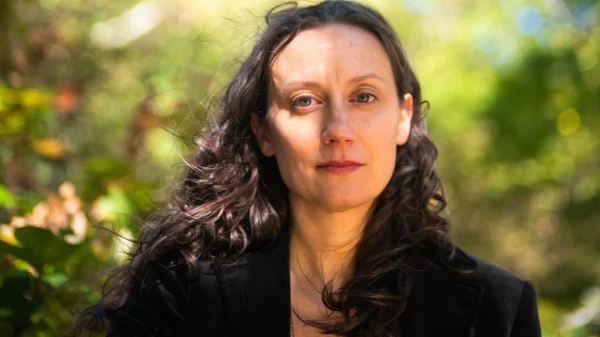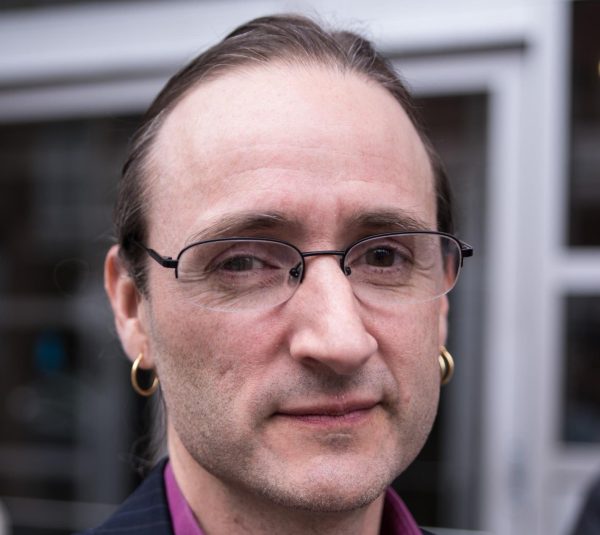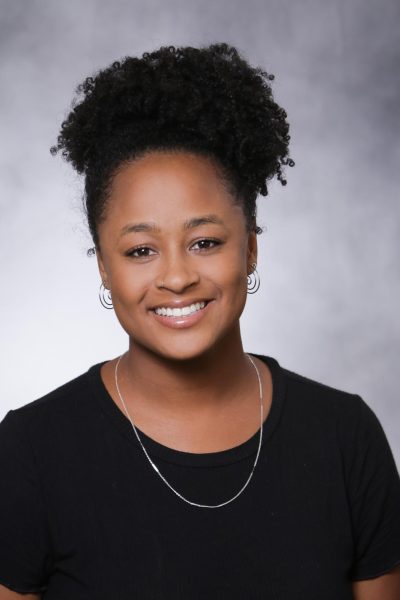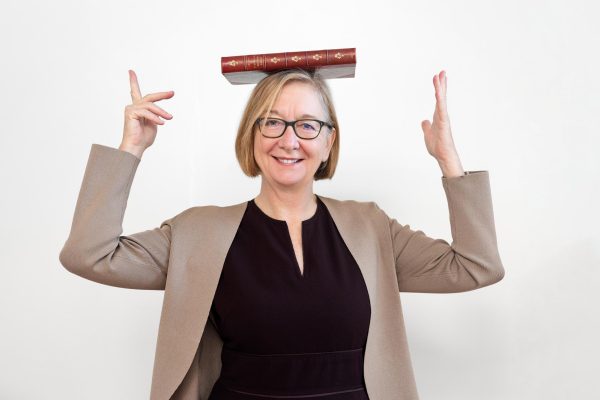Alexa Stevens: News Editor
Alexa Stevens.
Alexa Stevens is a graduating fourth-year Politics major with a concentration in Journalism. They began work at the Review in their first year as a Production editor and went on to become a News editor their fourth. At the Review, they wrote extensive coverage on campus news, with a focus on policy and community events. In the future, Alexa plans on attending law school after taking a gap year. This summer, they will be working for the Chronicle-Telegram, continuing to cover news in northeastern Ohio.
This interview has been edited for length and clarity.
When you started working at the Review, what were you interested in covering?
I got the list of emails at the beginning of my first year, and the first thing I saw was an email about a new dispensary that was opening up for medical marijuana. That was my first-ever byline and I thought that was really cool — to talk about politics and the ways community members are supporting each other, various policy things, and to write it in a way that was clear for students to understand. Because I know when you come to a new state, you don’t really know the laws. It was really cool to break that down for people, and explain how there can be a dispensary while marijuana is not legal here.
How do you see your Politics major complementing your work at the Review?
I did a lot of research papers about journalism because I was really curious about the interactions between journalism and politics. I recently wrote a piece about how conspiracy theories impacted journalism and the landscape of the press, as well as the ethical questions that people who write news have to grapple with, and that they wake up to all these conspiracy theories. I think it’s been really interesting to see the research side of that, practice it, and be the people who have to face those realities that are ever-shifting. In a lot of politics classes, we talk a lot about media, and sometimes in a really negative way, and so it’s really helped to be practicing that while learning about how we can be not the good press, but as much as possible the fair, ethical press. It was really helpful to learn the methods that journalists have used for years, and what is most effective and most interesting to read. And then when I became an editor, I could apply those skills to sort of rework people’s pieces around that.
You mentioned your mom is a journalist and creative writer. What’s your relationship with her, as News editor? Do the two of you talk about journalism?
I used to ghostwrite for her growing up. I’d put my name to some stuff once I was a little bit older. One time she had an assignment to write three books in two weeks, and so I wrote one of them and my dad wrote another, and she wrote hers. So that’s how I got my first — and I think my only — book byline, when I was like 16. My mom and I write different kinds of journalism. She writes more about lifestyle and a lot of stuff for children, or for moms, or things like that — whatever she’s commissioned to write. But sometimes, when I’m coming home from the office, she wants me to call her so I can feel safe when I walk home. It’s early enough for her to still be up and she’ll ask me about the issue and I’ll tell her what kinds of stuff we’re doing, and what kinds of problems we’re facing. She gives me some good input, which is really nice.
What do you think was your biggest achievement during your time at the Review?
I’m really proud of how the News section has recently got more into community reporting. The paper in town closed right before I got here. It wasn’t really something that people had fully caught up with yet, and I think we’re really doing a good job of figuring out how to be the paper of record for the town and the College. It’s been really great to work with community members and College students to talk about community stuff. For example, I really liked the drug testing at the library. It’s something that’s really of interest to College students that isn’t on their radar. A lot of College students really dramatize the opioid crisis around here. I think it’s really good to work with trained professionals in the community to break down some myths and do testing effectively, and help people feel safe and not really dramatize the situation.
I really admired the investigative journalism you did in reporting on the health code violations in the Rathskeller. Can you tell me about the impact of that story?
It was an important story to talk about because I think it was one that was on people’s minds, and people were saying, ‘Oh yeah, I’m sick from this food,’ and I could point them to what made them sick — it was just the soda machines and the ice. I think a lot of people didn’t read the story and they read the headline, and then they dramatized that a little bit. They were like, ‘I’m never eating there again.’ I’m like, ‘If you read the story, it’s just the ice.’ It was good to get that out there, and work with people to get some insight into what was going on.


